For some, it’s a hard truth to grasp; for others, it’s an everyday reality.
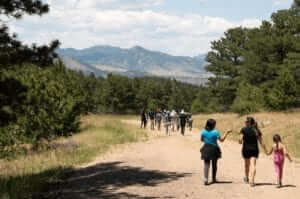
Our Protégete community explores Genesee Park & Buffalo Herd Overlook during the kickoff event of Latinx Conservation Week 2018
Latinx communities are disproportionately impacted by the negative effects of climate change, air pollution, and environmental hazards. They’re more likely to get asthma and to live near industrial activity that causes smog. That’s why Latinx communities are more likely to be concerned about environmental threats and are, in fact, leading the charge to advance conservation.
At Conservation Colorado, our Protégete program helps Latinx communities and leaders to build a more powerful, influential voice in the fight against climate change in hopes of a healthy future. We sat down with Noe Orgaz, the Protégete community organizer for Denver, to talk about his experiences growing up in Los Angeles and to explore what inspired him to professionally engage with Latinx communities through conservation advocacy.
What is Latinx Conservation Week? Why is this celebration important?
Latinx Conservation Week is an opportunity for the Latinx community to address conservation issues and bring awareness to the environmental issues that impact the Latinx community. We talk about how we can conserve, work toward a future that thrives, and possibly mitigate a lot of the effects of climate change we’re dealing with today.
Where did you grow up, and what was the environment like there? How did you interact with the resources around you?
I grew up in Los Angeles, California. The environment that I grew up in was a lot of asphalt and concrete. The area that I remember most is my grandmother’s house. Her backyard was adjacent to the LA River, with huge trees that I remember climbing on.
My parents didn’t feel safe drinking water out of the faucet so we always had to boil it in order to cook with it or simply drink it. We were worried it would be contaminated and make us sick. That’s one of the reasons I’m passionate about conservation today. Through my own life and the lives of other people experiencing oppression, I’ve seen the impact of environmental injustice.
In your work, in your professional experience, what are the most pressing conservation issues that face Colorado’s Latinx community?
One of the more prevalent issues right now that Latinxs are dealing with is the air quality in their communities. A lot of folks live near highways or near areas where there is construction. We’re seeing a lot of children get asthma from breathing polluted air in their homes, schools, and neighborhoods.
One of the bills we worked on this legislative session — the school setbacks bill — really got me thinking about the air pollution that kids like mine are experiencing. The bill was trying to increase the distance between schools and oil and gas drilling. It’s really troubling to know that there are communities that have oil rigs right by their football fields or playgrounds.
The idea of young people getting an education and breathing in the pollution from drilling and fracking — not to mention the risks of spills, explosions, and fires — it just doesn’t sit right by me. It’s definitely something that should be addressed — we need to make it safer for people to get a basic education.
When I think about my own children, I think about how many oil companies are drilling next to schools serving low-income families and Latinx youth, and that makes me want to work hard to change it.
Why is this celebration of Latinx Conservation Week important?
Latinx Conservation Week is important because it is an opportunity and a timeframe for people to be able to address the issues that most impact the Latinx community — but this should be something that goes on on a regular basis, an everyday basis. Every day should be like Latinx Conservation Week.
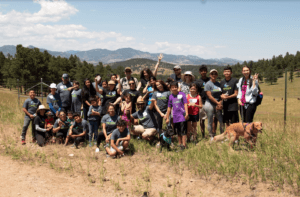

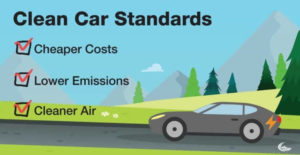
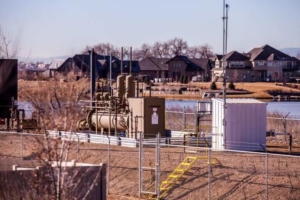 One bill — HB 1071 — was an attempt to clarify the mission of the Colorado Oil and Gas Conservation Commission (COGCC). It currently states that the COGCC is in charge of fostering and regulating oil and gas in Colorado. This bill would have changed this contradictory mission to prioritize health, safety, and the environment over industry profits.
One bill — HB 1071 — was an attempt to clarify the mission of the Colorado Oil and Gas Conservation Commission (COGCC). It currently states that the COGCC is in charge of fostering and regulating oil and gas in Colorado. This bill would have changed this contradictory mission to prioritize health, safety, and the environment over industry profits.
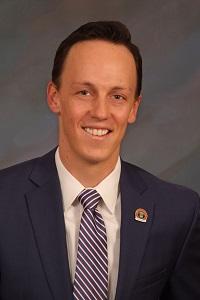 A mid-term appointment, Representative Dylan Roberts filled the seat of conservation champion Representative Diane Mitsch Bush when she decided to run for Congress. He got off to a great start with a focus on protecting our water, advancing rural economic development, and
A mid-term appointment, Representative Dylan Roberts filled the seat of conservation champion Representative Diane Mitsch Bush when she decided to run for Congress. He got off to a great start with a focus on protecting our water, advancing rural economic development, and 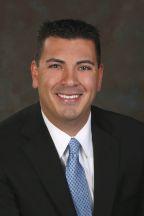
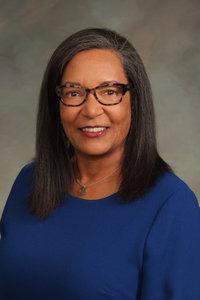
 There doesn’t seem to be a pressing West Slope issue that Senator Kerry Donovan won’t take on. From
There doesn’t seem to be a pressing West Slope issue that Senator Kerry Donovan won’t take on. From  Investing in transportation for all Coloradans. After two years of fighting, we notched a huge victory in passing SB 001, a bipartisan bill that includes major investments in transportation options like senior and disability buses, sidewalks for pedestrians, highway shoulders for tractors, and resources to keep everyone safe. It is a step towards funding our state’s massive transportation needs in a fiscally responsible manner, and it supports a system that will benefit all Coloradans. With 2.5 million more people expected to live in Colorado in the next 25 years, these options are more important than ever to combat congestion and improve air quality. While we believe additional revenues are needed to address all our transportation needs, this bill provides critical initial investments to move us forward.
Investing in transportation for all Coloradans. After two years of fighting, we notched a huge victory in passing SB 001, a bipartisan bill that includes major investments in transportation options like senior and disability buses, sidewalks for pedestrians, highway shoulders for tractors, and resources to keep everyone safe. It is a step towards funding our state’s massive transportation needs in a fiscally responsible manner, and it supports a system that will benefit all Coloradans. With 2.5 million more people expected to live in Colorado in the next 25 years, these options are more important than ever to combat congestion and improve air quality. While we believe additional revenues are needed to address all our transportation needs, this bill provides critical initial investments to move us forward. Renewing funding to protect our public lands. A massive funding stream for Colorado’s outdoors was reauthorized through Colorado’s lottery! This dedicates funding for parks, open spaces, and outdoor recreation in all 64 counties of Colorado. This bill (SB 066) will help boost local projects to protect our outdoors.
Renewing funding to protect our public lands. A massive funding stream for Colorado’s outdoors was reauthorized through Colorado’s lottery! This dedicates funding for parks, open spaces, and outdoor recreation in all 64 counties of Colorado. This bill (SB 066) will help boost local projects to protect our outdoors.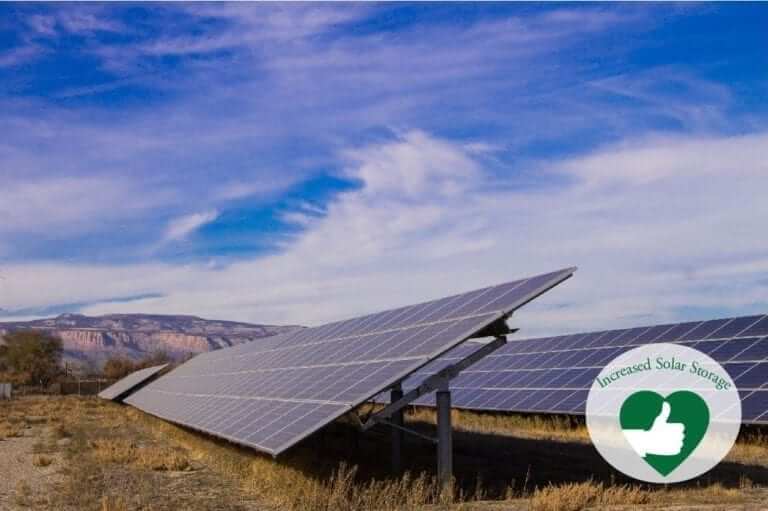 Advancing renewable energy through storage. Energy storage is an essential companion to renewables that will enable a clean energy future. Two bills tackled this need (SB 009 and HB 1270). SB 009 declares that power customers have a right to install, interconnect, and use energy storage systems, making sure that homeowners can store their renewable energy, while HB 1270 directed the Public Utilities Commission to consider storage in as utilities make plans for future energy sources.
Advancing renewable energy through storage. Energy storage is an essential companion to renewables that will enable a clean energy future. Two bills tackled this need (SB 009 and HB 1270). SB 009 declares that power customers have a right to install, interconnect, and use energy storage systems, making sure that homeowners can store their renewable energy, while HB 1270 directed the Public Utilities Commission to consider storage in as utilities make plans for future energy sources.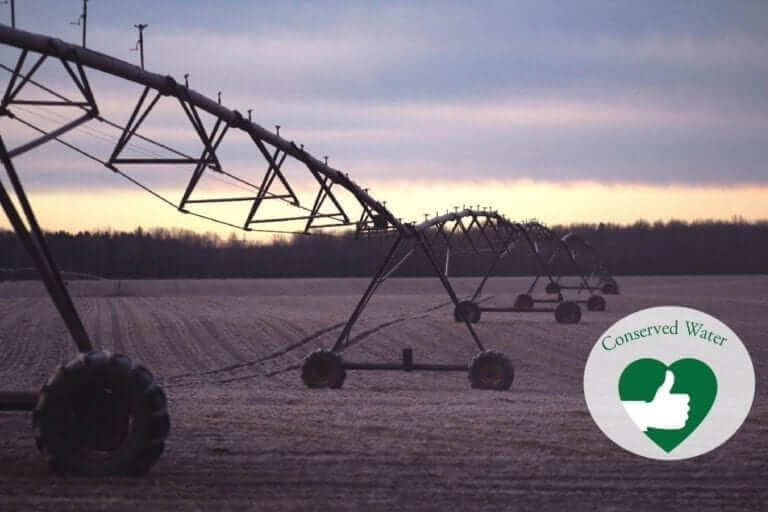 Conserving Colorado’s water. We helped pass three bills to allow reused water for flushing toilets (HB 1069), growing hemp (SB 038), and farming edible crops (HB 1093)! “Reuse” water is when water is used for one purpose, say to wash dishes, and then treated to a safe standard to be used again, like to water a garden. When a water provider is able to use the same water multiple times, it means more demands can be met without increasing their overall water consumption. Reusing water helps conserve our limited water resources, and these bills will save thousands of gallons a year.
Conserving Colorado’s water. We helped pass three bills to allow reused water for flushing toilets (HB 1069), growing hemp (SB 038), and farming edible crops (HB 1093)! “Reuse” water is when water is used for one purpose, say to wash dishes, and then treated to a safe standard to be used again, like to water a garden. When a water provider is able to use the same water multiple times, it means more demands can be met without increasing their overall water consumption. Reusing water helps conserve our limited water resources, and these bills will save thousands of gallons a year. Protecting state parks and wildlife. Coloradans depend on Colorado Parks and Wildlife to deliver on its mission and ensure future generations have access to the recreational opportunities available today. SB 143 allows CPW to prevent budget shortfalls and meet its goals by increasing user fees and adjusting them to keep pace with inflation.
Protecting state parks and wildlife. Coloradans depend on Colorado Parks and Wildlife to deliver on its mission and ensure future generations have access to the recreational opportunities available today. SB 143 allows CPW to prevent budget shortfalls and meet its goals by increasing user fees and adjusting them to keep pace with inflation.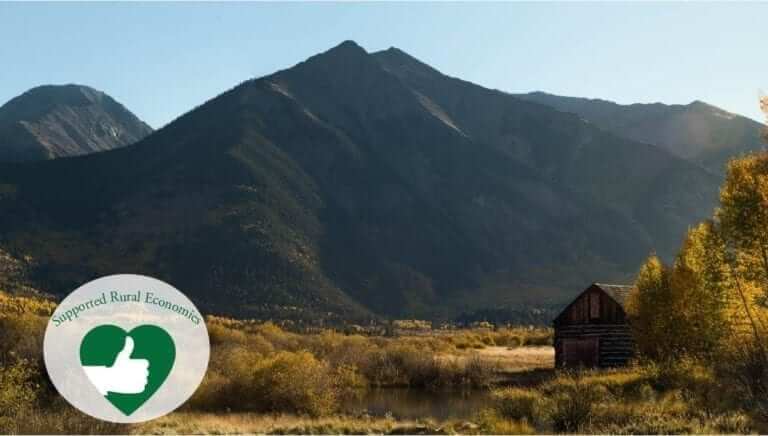 Supporting rural communities. Two bills were passed this year: first, the Rural Economic Advancement of Colorado Towns (REACT) Act aims to provide assistance to rural towns that have experienced significant economic shifts such as industry closure. This bill (SB 005) will help make sure our rural communities have support from the state of Colorado as they face transitions, often related to the shift to clean energy. Second, SB 002 adds funding for increasing broadband to rural areas across Colorado. Currently, many rural communities do not have access to broadband internet, or if they do, its poor and unreliable quality. Rural communities deserve high-speed, functional infrastructure so their opportunities to earn a good life are not limited.
Supporting rural communities. Two bills were passed this year: first, the Rural Economic Advancement of Colorado Towns (REACT) Act aims to provide assistance to rural towns that have experienced significant economic shifts such as industry closure. This bill (SB 005) will help make sure our rural communities have support from the state of Colorado as they face transitions, often related to the shift to clean energy. Second, SB 002 adds funding for increasing broadband to rural areas across Colorado. Currently, many rural communities do not have access to broadband internet, or if they do, its poor and unreliable quality. Rural communities deserve high-speed, functional infrastructure so their opportunities to earn a good life are not limited.

